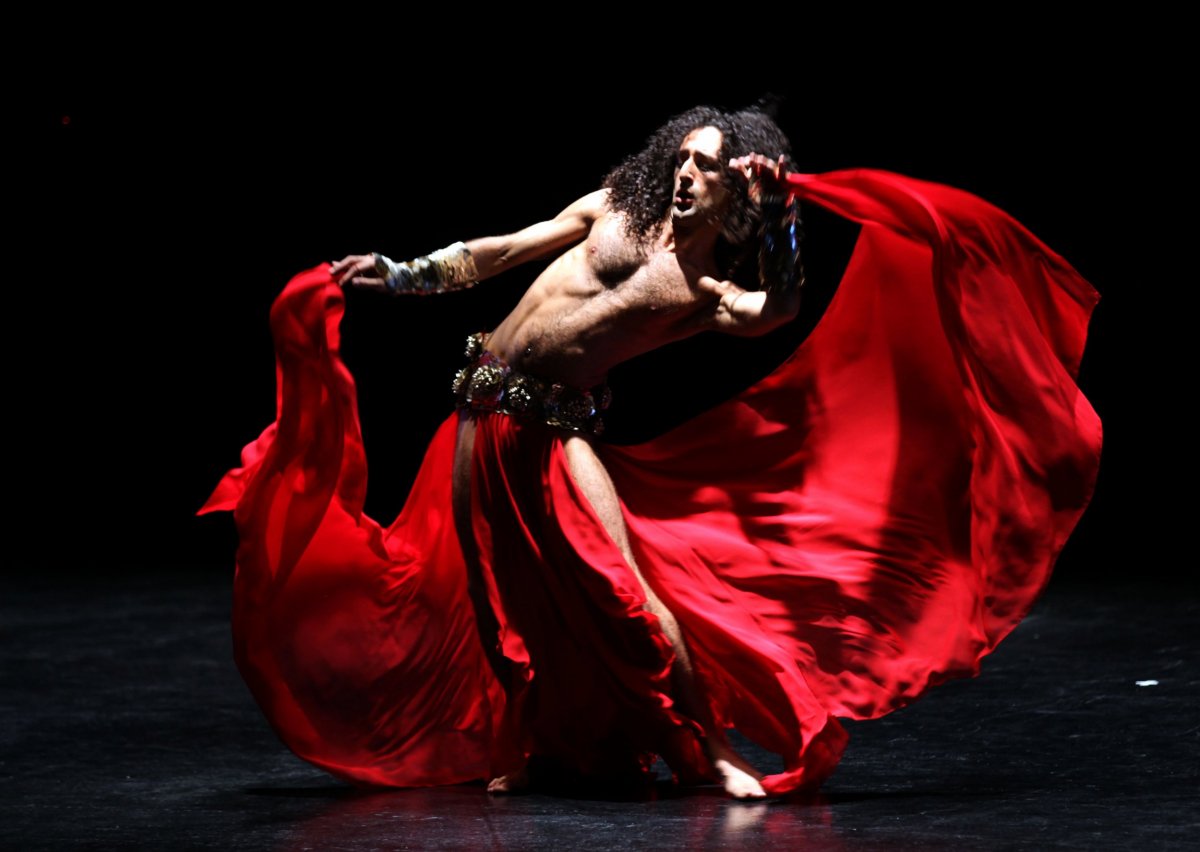The Arab world isn't known for its progressive outlook on queer culture or fluid gender roles. But Lebanese dancer Alexandre Paulikevitch isn't letting that stop him from freely expressing himself, in the form of "baladi" dancing—the preferred term for the form of torso dancing that originated in Egypt.
"Baladi is the authentic word for the colonial nomination of 'belly dancing,'" Paulikevitch explained in an interview with BBC, published Wednesday. "It's really a nomination that I think is more authentic than 'belly dance' that frames this dance with a female body for a male, essentially to arouse him."
Baladi dancing, Paulikevitch continued, on the other hand, is a solo, improvised dance intended to express emotion, whether it be celebration, anger or pain. Paulikevitch is one of the few male baladi dancers in the Arab world, and it's not been an easy journey for him—even in Beirut, one of the most progressive cities in that region. (In 2013, the Lebanese Psychiatric Society conceded that homosexuality was not a disease and did not need to be treated; in 2017, the country hosted its first-ever Beirut Pride Week.)

Paulikevitch said he fights to be respected as an openly gay artist, especially performing a dance that many see only as an avenue for female sexuality. He performs all over Beirut, from concert halls to festivals to the street, and he does field harassment. "I had people screaming in the audience, insulting me, [telling me to] get out. I had people in hysterical laughs, not controlling themselves."
Paulikevitch doesn't let it deter him. "I have a strong personality. I don't hide," he told The New York Times in December. "I know what needs to be done for gay rights: Less fear. More confrontation."
Paulikevitch is not the only artist using dance as a political tool for his country. He, and several other artists are featured in the documentary TV series, We Speak Dance, hosted by dancer Vandana Hart, and streaming on Netflix now.
Paulikevitch also teaches baladi dancing classes weekly in Beirut, and sees mostly women students. "Women in this country have learned to take less space," he told BBC. "When I say be more organic, I mean lose control of the mind. Let the body express itself."
Uncommon Knowledge
Newsweek is committed to challenging conventional wisdom and finding connections in the search for common ground.
Newsweek is committed to challenging conventional wisdom and finding connections in the search for common ground.
About the writer
Anna is a Newsweek culture writer based in New York City. Previously she was a Film/TV writer at Elite Daily and an ... Read more
To read how Newsweek uses AI as a newsroom tool, Click here.








